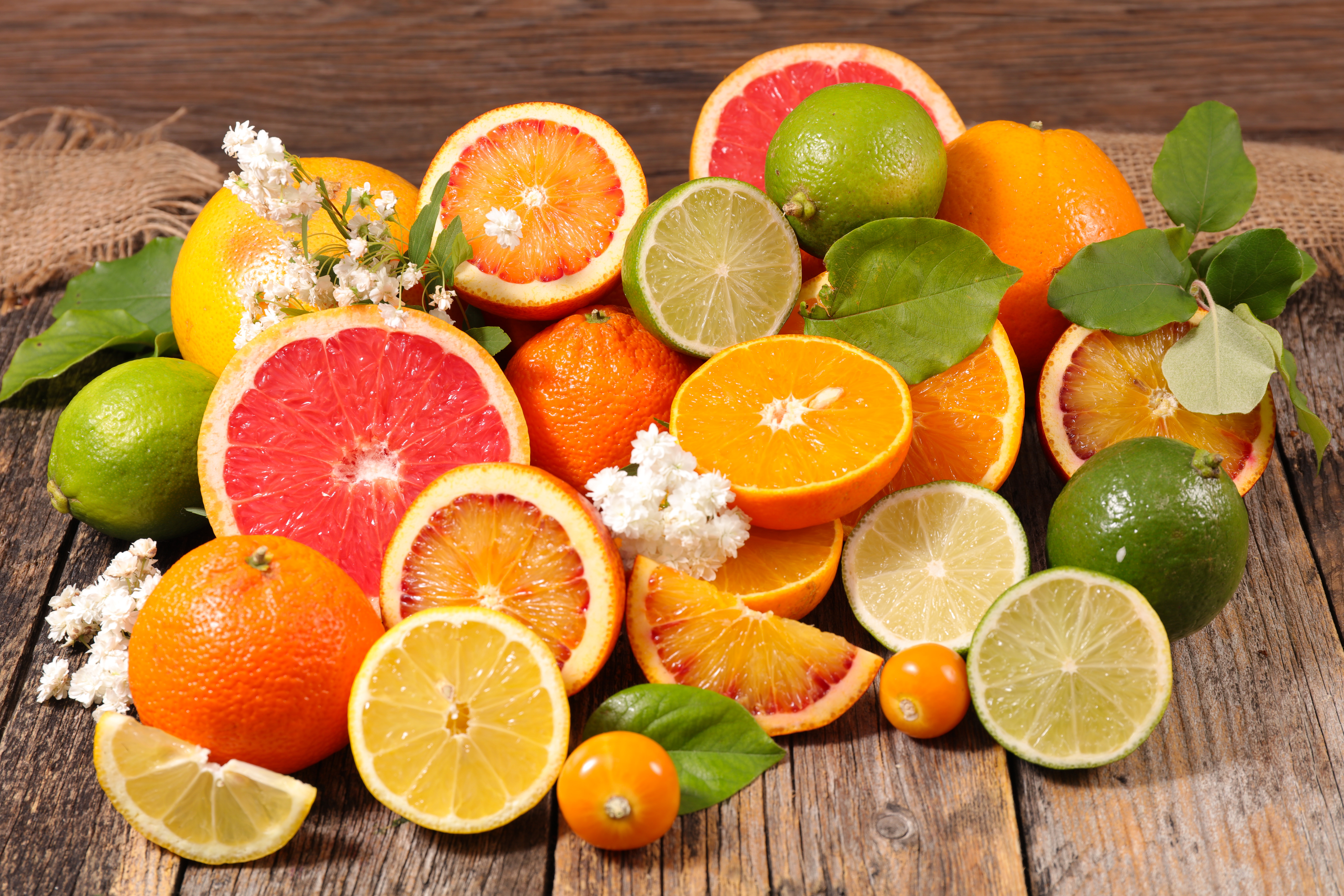
1. Citrus Fruits

Citrus fruits like tangerines, oranges, lemons, and grapefruits are very helpful in lowering blood pressure and preventing hypertension. According to data published in the journal Nutrition and Metabolism, an experiment conducted on more than a hundred adult women over five months showed that the group consuming citrus fruits daily experienced a significant decrease in systolic blood pressure (SBP) compared to the group that did not. This is because the citric acid and flavonoid components in citrus fruits inhibit the production of lipid peroxides that age blood vessels, affecting vasoconstriction. These fruits are rich in various vitamins and phytochemicals, reducing risk factors for heart diseases like hypertension. Notably, the peel contains even more of these beneficial components. Try brewing up some tea using those tangerine peels!
2. Bananas

Bananas are rich in potassium, which helps lower sodium and blood pressure. A medium-sized banana contains 450mg of potassium and 3.3g of fiber, making it effective in reducing blood pressure. Potassium helps excrete sodium from the body and inhibits the activity of renin, a hormone that raises blood pressure. According to research from the Department of Food and Nutrition at Chungnam National University, a study conducted on 20,000 adult men and women over four years found that the group that consumed enough potassium daily had a systolic blood pressure up to 4.2mmHg lower than the control group. Adequate potassium intake also increases good cholesterol (HDL). It is also beneficial for vascular health and significantly reduces the risk of coronary artery disease. Bananas are also rich in tryptophan, which induces sleep, making it beneficial to eat one banana two hours before bed.
3. Berries

Berries such as strawberries, blueberries, cherries, and raspberries are rich in flavonoids and antioxidants. Flavonoids have 2.5 times more ability to eliminate active oxygen compared to vitamin C. This component helps maintain normal blood pressure and prevent blood clots, reducing the risk of heart disease. According to research from Queen’s University in the U.K., an investigation into the relationship between flavonoids and blood pressure among 904 adults revealed that the group consuming berries regularly had 2.9% lower systolic blood pressure and 5.5% lower pulse pressure than the control group. Researchers explained that flavonoids increase alpha diversity of gut microbiota, leading to lower systolic blood pressure.
Frozen berries have even higher concentrations of antioxidants, so using frozen products should be okay. Eggs, potatoes, and spinach are also beneficial for hypertension. However, in some hypertension medications, excessive potassium intake can cause increased heart rate and muscle pain. Therefore, it’s best to consume it in moderation or ask your doctor before consumption to ensure maximum safety.










Most Commented